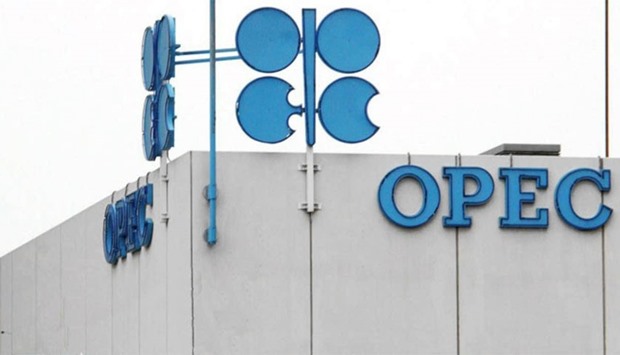* Saudi Arabia says most in Opec and Russia on board for new cuts
* Opec sources say group unlikely to deepen cuts* Market losing faith in speedy rebalancing
* Hedge fund Andurand Capital liquidates long position in oil
* Brent traded volumes hit record high
Oil prices fell to five-month lows on Friday on concerns about a persistent glut despite assurances from Saudi Arabia that Russia is ready to join Opec in extending supply cuts.
US West Texas Intermediate (WTI) crude oil futures fell more than 3% in early trading to less than $44 a barrel, the lowest since November 14. It fell 4% on Thursday.
Benchmark Brent also fell 3% to below $47, its lowest since November 30, which was the date the Organisation of the Petroleum Exporting Countries triggered a rally when it said it would cut production in the first half of 2017.
Both benchmarks trimmed losses to trade near Thursday's close by 1320 GMT after Saudi Arabia's Opec Governor Adeeb Al-Aama told Reuters that Opec and non-Opec nations were close to agreeing a deal on supply cuts.
"Based on today's data, there's a growing conviction that a six-month extension may be needed to rebalance the market, but the length of the extension is not firm yet," the Saudi official said.
Opec sources said on Thursday that Opec is likely to extend cuts when it meets on May 25 but that a deeper cut is unlikely. Opec and non-Opec states initially agreed to cut 1.8mn barrels per day (bpd) in the first six months of 2017.
Brent traded volumes on Thursday reached a record high of nearly 542,000 contracts, suggesting that hedge funds had accelerated reductions to their long positions.
Pierre Andurand, who runs one of the biggest hedge funds specialising in oil, liquidated his fund's last long positions in oil last week and is running a very reduced risk at the moment, a market source familiar with the development said.
"It is now-or-never for oil bulls," said US commodity analysis firm The Schork Report. "They either put up a defence here or risk further emboldening the bears for a run at the $40 threshold (for WTI)."
Both Brent and WTI futures are down about 17% so far this year despite Opec efforts to support prices. The benchmarks are trading around levels last seen before the joint deal to cut output was first announced.
"So far Opec's strategy to draw down inventories has not worked," wrote Neil Beveridge, senior analyst at AB Bernstein in Hong Kong. "It seems obvious to us that Opec will need to keep the cuts in place for longer than the next six months if their strategy is to have any chance of success."
Adding to concerns about bulging inventories, traders pointed to soaring US oil output, which is up more than 10% since mid-2016 to 9.3mn bpd, almost matching output of top producers Russia and Saudi Arabia.
"Any likelihood of an increase in the level of cuts remains slim with Opec officials playing down this possibility," said James Woods, global investment analyst at Rivkin Securities.

